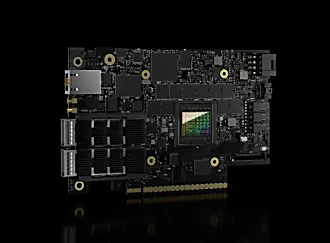Anton Smith
on 24 September 2021
Bare metal cloud support for Ubuntu 14.04 and 16.04 LTS
Now that Canonical is prolonging the lifecycle of Ubuntu 14.04 LTS ‘Trusty Tahr’ and 16.04 LTS ‘Xenial Xerus’ to a total of ten years, it’s a good time to reflect on how else Canonical supports these releases for bare metal cloud.
Bare metal lifecycle management
Whether you’re running a small or a large fleet of servers in your bare metal cloud, it’s crucial to have a way to ensure consistency and repeatability across them – not only to save time on wondering what the state of a particular machine is (and it’s operating system), but also for security reasons.
With the Extended Security Maintenance (ESM) phase of Ubuntu 14.04 LTS and 16.04 LTS, it’s worthwhile highlighting that MAAS provides automated OS image synchronisation – including for these releases as well as many others.

What is MAAS?
MAAS, or “Metal As A Service” manages the lifecycle of bare metal machines. It allows you to easily install, upgrade, and rebuild servers, providing them with an operating system such as Ubuntu, from scratch. In short it gives you an API to manage your bare metal, enabling you to provision, decommission, track inventory, test, and maintain your bare metal cloud in a programmatic and automated way.

Automatic image updates
MAAS automatically keeps up-to-date Ubuntu images for deployment on bare metal, and it’s as easy as a couple of clicks to enable this for 14.04 LTS and 16.04 LTS.

And just like magic, this will keep everything synced up on a daily basis, ensuring the images you load onto your bare metal will always be up to date. Better yet, use cloud-init to automatically attach the machines to Ubuntu Advantage to enjoy additional support.
Reclaim your time
No messing around managing images or pulling down images yourself before deploying machines. Go have an extended lunch instead while MAAS takes care of it for you.
No spaghetti mess of installed images – go take an extra coffee break instead of chasing coworkers about which images they used.
MAAS does much more than image management, it also:
- Tests your disk, network, CPU and RAM for you
- Keeps an inventory of machines – CPUs, NUMA, RAM, GPU, disk and more
- Clone machine configurations
- Tag machines and keep track of availability zones
- Allows you to load your own scripts to customise your installs
- Build your own images
- and lots of other stuff!
Summary
Think of MAAS as your Trusty new friend (see what I did there?), helping you to keep your images such as Ubuntu 14.04 LTS ‘Trusty Tahr’ and 16.04 LTS ‘Xenial Xerus’ up to date without manual intervention, but also offering everything else you need to manage your bare metal cloud.
Try MAAS out, it’s simple to install.
If you want to talk to us directly – the MAAS team would love to hear from you.
Suggested reading
- Learn more about MAAS at our Metal As A Service webpage.
- If you like the nuts and bolts (more puns for the people), you can get into more detail at our “About MAAS” page, and we’ve also published an ebook.
Server photo by https://unsplash.com/@wocintechchat



